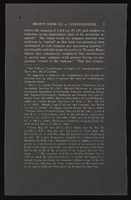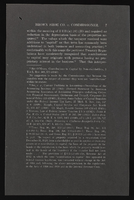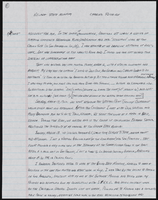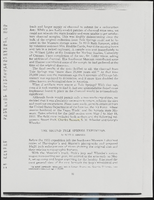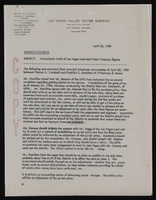Search the Special Collections and Archives Portal
Search Results
Chris Lee oral history interview
Identifier
Abstract
Oral history interview with Chris Lee conducted by Cecelia Winchell and Stefani Evans on December 14, 2021 for Reflections: The Las Vegas Asian American and Pacific Islander Oral History Project.
Judge Chris Lee reflects on the lives of his parents, their occupations and experiences during the Korean War, and his family's decision to immigrate from Incheon, South Korea to Las Vegas. He recalls memories from his childhood visiting family in Korea, Korean traditions and food, his educational pursuits, and the livelihood of his parents after immigrating. Chris also shares details of his employment history as Deputy District Attorney for the Clark County District Attorney’s Office, as Deputy Secretary of State for Southern Nevada, as the first Asian American elected to the Clark County Justice Court bench, and presently as Judge in Department 1 of the North Las Vegas Municipal Court.
Archival Collection
Alan Copeland Music Scores
Identifier
Abstract
The Alan Copeland Music Scores are original handwritten music scores arranged by American composer Alan Copeland from approximately 1936 to 2004. Copeland worked with various musicians and groups, such as Les Brown, the Modernaires, and Sarah Vaughn.
Archival Collection
UNLV Libraries Collection of Binion’s Horseshoe Hotel and Casino Promotional and Press Materials
Identifier
Abstract
The UNLV Libraries Collection of Binion’s Horseshoe Hotel and Casino Promotional and Press Materials includes clippings, press kits, press releases, and promotional materials dating from 1963 to 2004 for Binion’s Horseshoe Hotel and Casino in Las Vegas, Nevada.
Archival Collection
UNLV Libraries Collection of Peppermill Casinos Incorporated Promotional and Press Materials
Identifier
Abstract
UNLV Libraries Collection of Peppermill Casinos Incorporated Promotional and Press Materials includes clippings and promotional materials for Peppermill Casinos Incorporated properties in Reno, Nevada, Las Vegas, Nevada, and Mesquite, Nevada, dating from 1984 to 2007.
Archival Collection
Phillip L. Cook oral history interview
Identifier
Abstract
Oral history interview with Phillip L. Cook conducted by Richard Strahan on March 3, 1977 for the Ralph Roske Oral History Project on Early Las Vegas. Cook first talks about his parents' move to Nevada and discusses how the school system has changed over time. He then describes the first businesses that opened up in the Downtown and Strip areas of Las Vegas, Nevada before discussing prostitution, Block 16, and recreational activities available to youth. Cook also talks about the first television sets and telephone systems made available, and he moves on to talk about the prices of things such as movies and haircuts when he was younger. The interview then moves to discussions on the Old Ranch, racial discrimination, school integration, the crime rate, and the school system in Las Vegas.
Archival Collection

